Celebrate Prince Charles’s countryside heroes
The Prince of Wales nominates his rural heroes
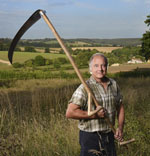

The hill farmers Joe and Hazel Relph, 58 and 56
Champion credentials Tenant farmers for the National Trust at Yew Tree Farm in Borrowdale, Cumbria, since 1985 (www.borrowdaleherdwick.co.uk) Keeping young people interested in our way of life has always been our passion. It used to be the case that farms stayed in the family, but things have changed and that isn't always possible nowadays.
We first met The Prince of Wales when he visited Cumbria at the end of the foot-and-mouth disease epidemic in 2002. We hit it off straight away-his interests are ours. He's been to stay with us every year since, and he actually came up with the idea of The Prince's Countryside Fund (page 166) while he was staying here. Before that, we'd had a very lean decade in which there were no young people coming in [to farming], but now positive things are starting to happen. You feel as if you have somebody on your side.
The ‘culture' side of agriculture is incredibly important. Working in the way we do is a community thing -six farmers go to the fells together to gather. We'd love to see a better understanding of that. People at a policy-making level have to realise that there are consequences to their decisions, and see how important this way of life is to these valleys.
It's bigger than just farming-it's the whole rural landscape, and we're afraid of the hundreds of years of work that have gone into managing it just disappearing. The Prince realises how brittle everything is. EH
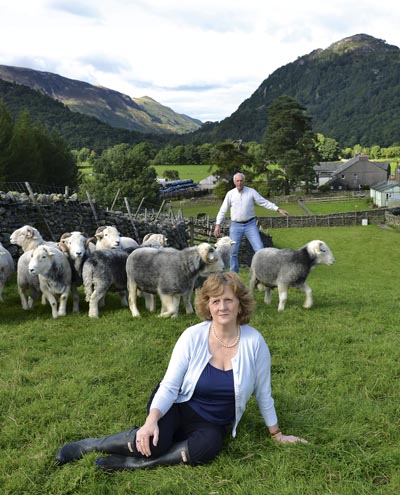
The stalker Peter Fraser, 66
Champion credentials Formerly head stalker for the Farquharson family at Invercauld, Aberdeenshire, now a ghillie at Birkhall for The Prince of Wales i was at Invercauld from 1969 until 2012-43 years. But even after all that time, I was still learning. Right up until the day I retired, I was coming across things that were new to me.
Sign up for the Country Life Newsletter
Exquisite houses, the beauty of Nature, and how to get the most from your life, straight to your inbox.
A lot of people see deer down by the roadside and think ‘stalking can't be that difficult', but in the summer months, it's a different ball game.
You're dealing with a very intelligent animal, and it's not just the one you're pitting your wits against-the whole time you're on the hill, you have several hundred pairs of eyes watching you. You have to think like a deer, and you can't leave anything to chance. If you do, you can easily end up with nothing. For anyone who loves being out in the wild, miles away from it all, there's no better sport. You never get fed up with it. I don't know what the future holds for stalking, but if I could turn back the clock, I'd do it all again.
I first met The Prince in the late 1980s, when he was invited to shoot grouse on Invercauld. Later, he employed me on the Glen Callater and Baddock beats after he took them over. He steadied the ship on the estate, and I've always thoroughly enjoyed working with him. He has great respect for those who work in the countryside, as well as Mother Nature. He hates to see vehicle tracks on the hill, for example-before you know it, they've turned into a great big scar on the hillside.
When he's at Birkhall, it's very much a working holiday-he's often in meetings or away on engagements, but if he gets an hour or two to himself in the evenings, he might go down to the river and have a cast. EH
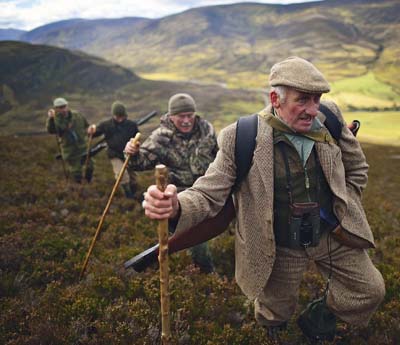
The scyther Nigel Adams, 54
Champion credentials Member of the Scythe Association and a former chairman of the National Hedgelaying Association
Scything is a truly rewarding way of managing meadows. It's hard work, but there's a peacefulness about it. I take great personal satisfaction in using traditional hand tools in my work and a scythe is one of the oldest of all.
A couple of years ago, 40 of us from the Scythe Association were chosen to be extras in Joe Wright's film Anna Karenina. I told His Royal Highness about this (we met through the National Hedgelaying Association, of which he's patron), and he invited us to mow the wildflower meadow at Highgrove.
I'm obsessed with hedges-for me, they define the English landscape. Only 50% of them are in favourable condition, however, and in arable areas, the figure is only 12%, so I'm very worried about their future. Over-flailing and neglect are big problems. Laying rejuvenates a hedge from the base, and provides a wonderful wildlife habitat.
The Prince appreciates that traditional crafts can be part of a vibrant modern countryside. I want to keep them alive, too, and train more young people in them. Very often, the older ways of doing things are more sustainable-that's why they've been around for thousands of years. EH www.nigeladamscountrysidemanagement.co.uk
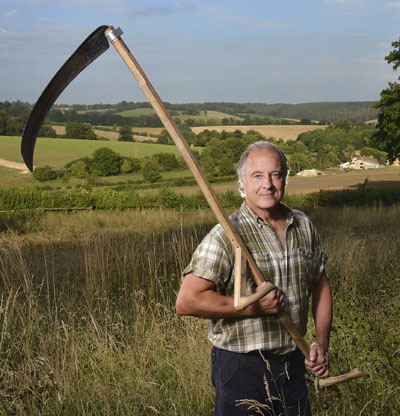
The organic pioneer Patrick Holden, 63
Champion credentials Former director of the Soil Association, now runs the Sustainable Food Trust (http://sustainablefoodtrust.org). Created a community dairy farm in 1973-the longest-established certified organic dairy farm in Wales. The milk produced by the farm's Ayrshire herd is made into a raw-milk, hard cheese by his son, Sam (www.hafodcheese.co.uk)
Although I grew up in and around London, brief glimpses of the countryside on holidays to wild places such as the Hebridean islands and the Cornish and Devon coasts planted a seed in me, which was to germinate in a way I could never have imagined. I got involved with the Green movement on a trip to California. On my return, convinced the world was on the brink of disaster, I set up a rural commune near the Cardiganshire coast. Forty years on, the farm is still going strong even if the commune isn't.
The responsibility of anyone who has the good fortune of any stewardship of land is to improve it. Striving to make a place beautiful as well as functional is just one of the ideas that The Prince of Wales has inspired me with.
All the world's cities are umbilically dependent on the countryside for food and services. This farm works as a microcosm of all the farms in the UK-if it's healthy, then the cities and the nation will be healthier.
My path crossed that of The Prince just after he bought Highgrove in the 1980s-we were both early adopt-ers of the organic movement. He's a visionary who has borne witness to the damage that intensive agriculture has done to the land, and it's on his conscience. Cheap food isn't cheap at all when you consider the extra cost of the environmental burden it brings with it. Thank God we've got a man like him in this role.
Of course, it's connected with the fact he's heir to the throne, but that's to miss the point. His work ethic is incredible: he doesn't eat lunch and is always at his desk. He even goes back to it after supper, not because he has to, but because he wants to. PL
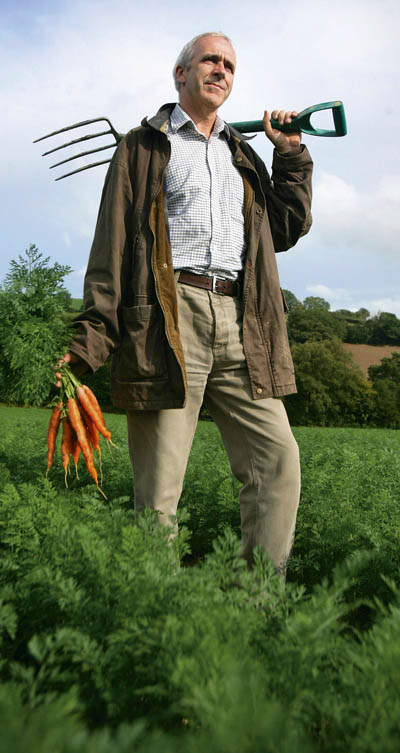
The horse logger Simon Lenihan, 50
Champion credentials Cumbria-based horse logger, maintaining an old rural tradition, on the Duchy of Cornwall farms and at Balmoral, Aberdeenshire (www.britishhorseloggers.org)
I grew up with horses farming in Co Limerick, Ireland, and it's something I've always wanted to do. My wife, Katherine, used to work the horse while I did the timber-felling, but she now looks after the house and the farm in the Lake District while I-and four of my sons-sometimes work a long way from home.
Horse-logging remains the most environmentally friendly, low-carbon form of timber harvesting. As far as the economics are concerned, you have to remember that horse loggers are often asked to work in difficult areas when there is low output. Big machines have their place, but, usually, other big machines then have to come in and repair the damage.
If you look at the forest with the short-term view taken by agents and accountants, the figures may not look good, but none of us have the right to destroy the forest. We recognise mechanised harvesting will be the main mover, but on sensitive sites of archaeological importance or by rivers and watercourses, horses are best.
We have six horses, a mixture of Belgian Ardennes and North Swedish, which have been bred for forestry work. Sadly, showing has reduced the working ability of our native breeds, such as shire horses.
The Prince is a real champion of champions for horse logging. He's provided work on his estates and put on events in every corner of the country to support it, reviving horse-logging and keeping it alive. He's really passionate about moving it forward. RU
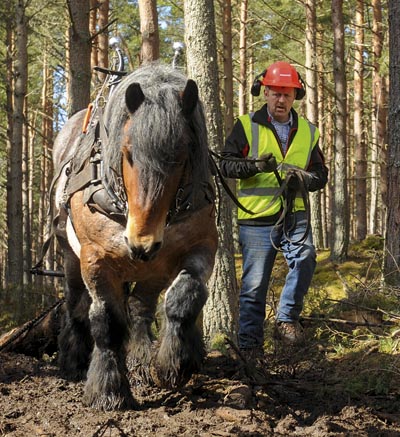
The environmentalist Tony Juniper, 53
Champion credentials Former executive director of Friends of the Earth, now a trustee of the Bedfordshire, Cambridgeshire and Northamptonshire Wildlife Trust and Fellow of the University of Cambridge Programme for Sustain-ability leadership (CPSL). Co-wrote Harmony (2010), with The Prince and Ian Skelly, and published What Has Nature Ever Done For Us? (2013)
AS a very small child, I had a fascination with animals, plants, butterflies, lizards and water, and I remain very much immersed in all those things. I grew up in Oxford and now live in Cambridge, so I'm not a rural person, but I spend a lot of time in the countryside, drawn to it by the wildlife.
If you're a naturalist, you tend to go in one of two directions: conservationist or scientist. I studied zoology and am very pleased to be able to follow this path, as I'm hugely passionate about what I do. I first met The Prince of Wales during my early days at Friends of the Earth, but I was already a great advocate of his, having tuned into one of his speeches in the late 1960s, and, when I left the charity in 2008, I became an advisor on The Prince's Rainforests Project.
The biggest threat to Nature is our increasing disconnection from it. The less people understand what is happening, the more difficult it is to galvanise the type of action that we need to fight this. Some see farming as an abusive, mechanised, brutal indus-trialised activity rather than one that sustains Nature. The truth is, although some of it is brutalised, there is plenty of good practice going on.
Science can't answer all the questions. If we're to reconnect people with Nature, we need to communicate with-and educate-the public in different ways. We need wildlife reserves that we can get a great many of people into and to convey some sense of importance that's more personal than just being told by David Attenborough that ‘it's all going to hell in a handcart'. PL
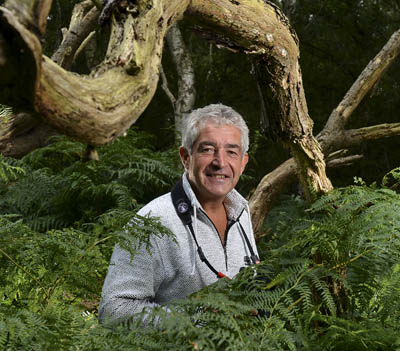
The hedgelayer John Savings, 70
Champion credentials Trainer for the National Hedgelaying Society and hedgelaying tutor to The Prince of Wales
There's something really special about taking a hedgerow that's 15ft tall, much too wide and dying off, and getting right back to basics. If you cut it down in the correct way, it'll live on for another half century.
I've been hedgelaying for going on for 30 years-I've taught more than 100 people in my time, from solicitors to farm managers-and, after a while, I started wondering how I could encourage land-owners and the general public to give it a go. I had the idea of bonsai hedges-troughs planted with hawthorns no more than 5in or 6in tall that I could cut and lay in different styles. I toured the summer shows with them, and people couldn't believe they were living hedgerows.
I ended up at the CLA Game Fair at Shuttleworth in 2001, where I met The Prince of Wales. I'd always hugely admired him, so it was a dream come true. He was impressed by my display and keen to learn more, so I said that it would be an honour to teach him. That December, I went down to Highgrove from my home in Appleton, Oxfordshire, and, since then, I've been back every year.
There's now an annual competition at Highgrove and, during the season, if The Prince is there, he'll be hedgelaying, whatever the weather. I'd have him on my team! Thanks to him, we've even had hedgelaying at the Chelsea Flower Show. EH
www.hedgelaying.org.uk
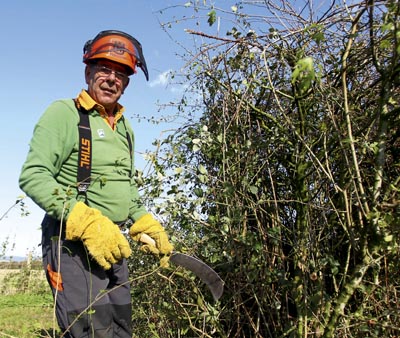
The former huntsman David Barker, 78
Champion credentials Former Olympic showjumper and huntsman, now works as an estate manager for the Hon Johnny Greenall in Staffordshire
When I was showjumping, hunting was my priority. I just wanted to hunt hounds-sod everybody else. It's a fascinating and tantalising game: you breed these hounds and they do special things for you. Every hound is a bit different. They're like a football team, in that you have forwards, centres and backs, but they have to do it all together. I've been finished [hunting hounds] for 13 years, but I still miss it-Tony Blair wants his balls cutting off [for bringing in the 2004 Hunting Act].
I first met The Prince of Wales when he was a boy, with The Duke of Edinburgh and The Queen, at Arundel when the British showjumping team was practising for the 1960 Olympic Games. When I hunted hounds for him [at the Meynell & South Staffordshire], I conceitedly used to say I was huntsman to The Prince of Wales, which was wrong, as he hunted where he wanted.
He hunted with the late [Quorn huntsman] Michael Farrin, who was a great pal of mine, but the Meynell country is perhaps a little bit better. In my book, the Meynell is still one of the best hunting countries in England. It was all grass, and every 150 yards, there was a big fence that used to sort out the girls from the boys.
The Prince was a proper hunting man-his thing was the gallop-ing and the jumping. His horses lived at the kennels with ours and he used to drive up to hunt with us most Tuesdays and the odd Sat- urday. He's brave and was a good-ish horseman-what he lacked in talent, he had in guts. People don't give him credit for how outstanding he is. He should be head of Defra, and then we'd go places. I'm just a servant, but he's treated me like a king. PL
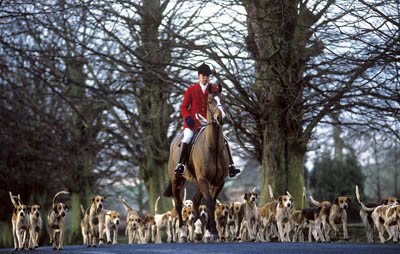
The business booster Polly Gibb, 48
Champion credentials Director of Women in Rural Enterprise (WiRE; www.wireuk.org), which supports countryside-based women who are running their own businesses
Scratch the surface of any rural landscape, and you'll find that it's alive with enterprise. WiRE came out of research at Harper Adams University into farm diversification, which found that, in 90% of cases, it was the women on farms who were driving the new businesses forward. But the majority of these women were isolated and often lacked confidence, so we decided to organise a conference so they could make contact with each other.
Five hundred people came, which we weren't expecting. Word spread, and The Prince became aware of our work and he recently invited us to work with the many women who are running businesses on Duchy of Cornwall farms.
Businesses of the kind our members run are becoming more important in keeping traditional ways of life going. We're always keen to recruit members, and it would be wonderful if all rural areas could have their own WiRE group, so that every businesswoman feels part of an important community.
The countryside is definitely where I'm most comfortable-when I'm in London for meetings, I feel as if I'm in hostile territory! But my relationship is as much with people as it is with the landscape. EH
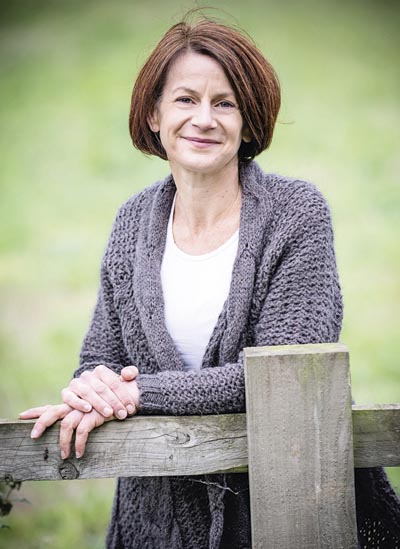
The charity pioneer Dr Jim Cox, 63
Champion credentials Chairman of the Northern Fells Group (www.northernfellsgroup.org.uk), which works to alleviate social exclusion and isolation in the rural Lake District I'm like a fell sheep-hefted to the hills! I was born in Caldbeck, Cumbria, and was a GP here for many years.
It's a beautiful area, but as the old saying goes, you can't eat the view. Having become increasingly aware that we were talking a lot about inner-city poverty and social exclusion, but that people in the countryside in a similar predicament remained unseen, I was invited to a seminar under The Prince of Wales's auspices in London to address this issue.
This eventually led to the formation of The Prince's Rural Action Programme. Together, we came up with the idea of three projects, in Cumbria, Cornwall and the Yorkshire Dales. We launched the Northern Fells Rural Project [predecessor of the Northern Fells Group] in 1999, and what became immediately apparent was how eager people were to help. The Prince has always been actively involved, too. He opened doors for us that might otherwise have remained closed.
Since then, we've expanded, but we're still flexible, so that when new needs become apparent, we adapt to meet them. The popu-lation here is changing so much-there are many more retired people now. I hope we can continue to offer access to services that wouldn't otherwise be available. We don't want to tread on the toes of other service providers-we're here to fill the gaps. EH
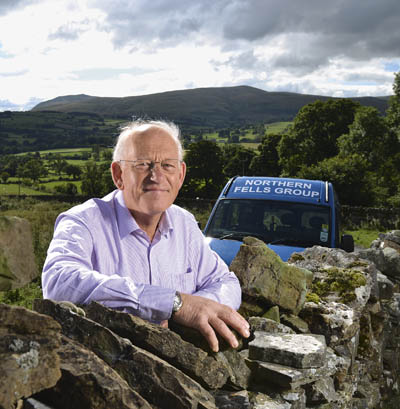
Country Life is unlike any other magazine: the only glossy weekly on the newsstand and the only magazine that has been guest-edited by HRH The King not once, but twice. It is a celebration of modern rural life and all its diverse joys and pleasures — that was first published in Queen Victoria's Diamond Jubilee year. Our eclectic mixture of witty and informative content — from the most up-to-date property news and commentary and a coveted glimpse inside some of the UK's best houses and gardens, to gardening, the arts and interior design, written by experts in their field — still cannot be found in print or online, anywhere else.
-
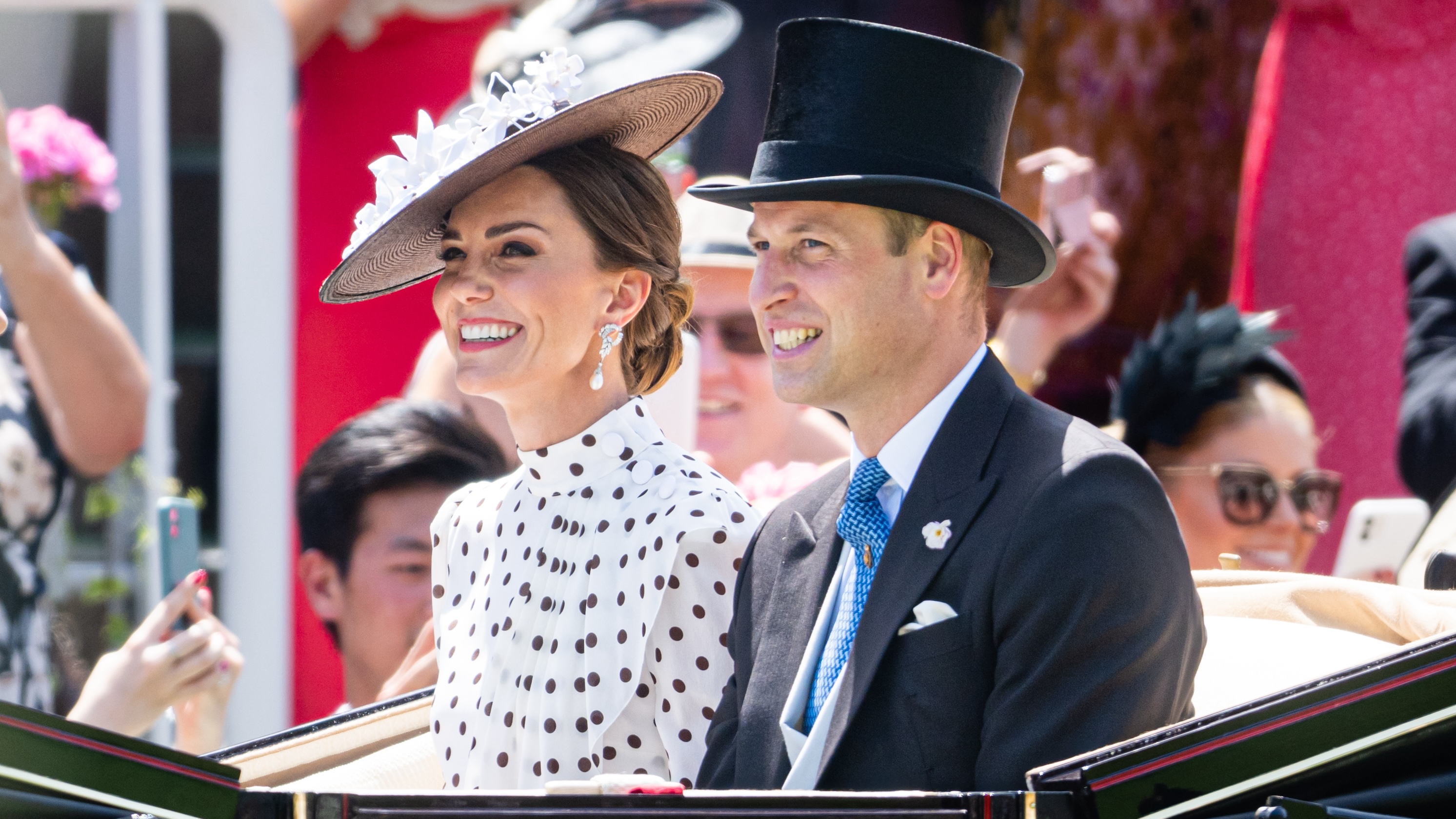 'The watch is Head Boy of men’s accessorising': Ginnie Chadwyck-Healey and Tom Chamberlin's Summer Season style secrets
'The watch is Head Boy of men’s accessorising': Ginnie Chadwyck-Healey and Tom Chamberlin's Summer Season style secretsWhen it comes to dressing for the Season, accessories will transform an outfit. Ginnie Chadwyck-Healey and Tom Chamberlin, both stylish summer-party veterans, offer some sage advice.
-
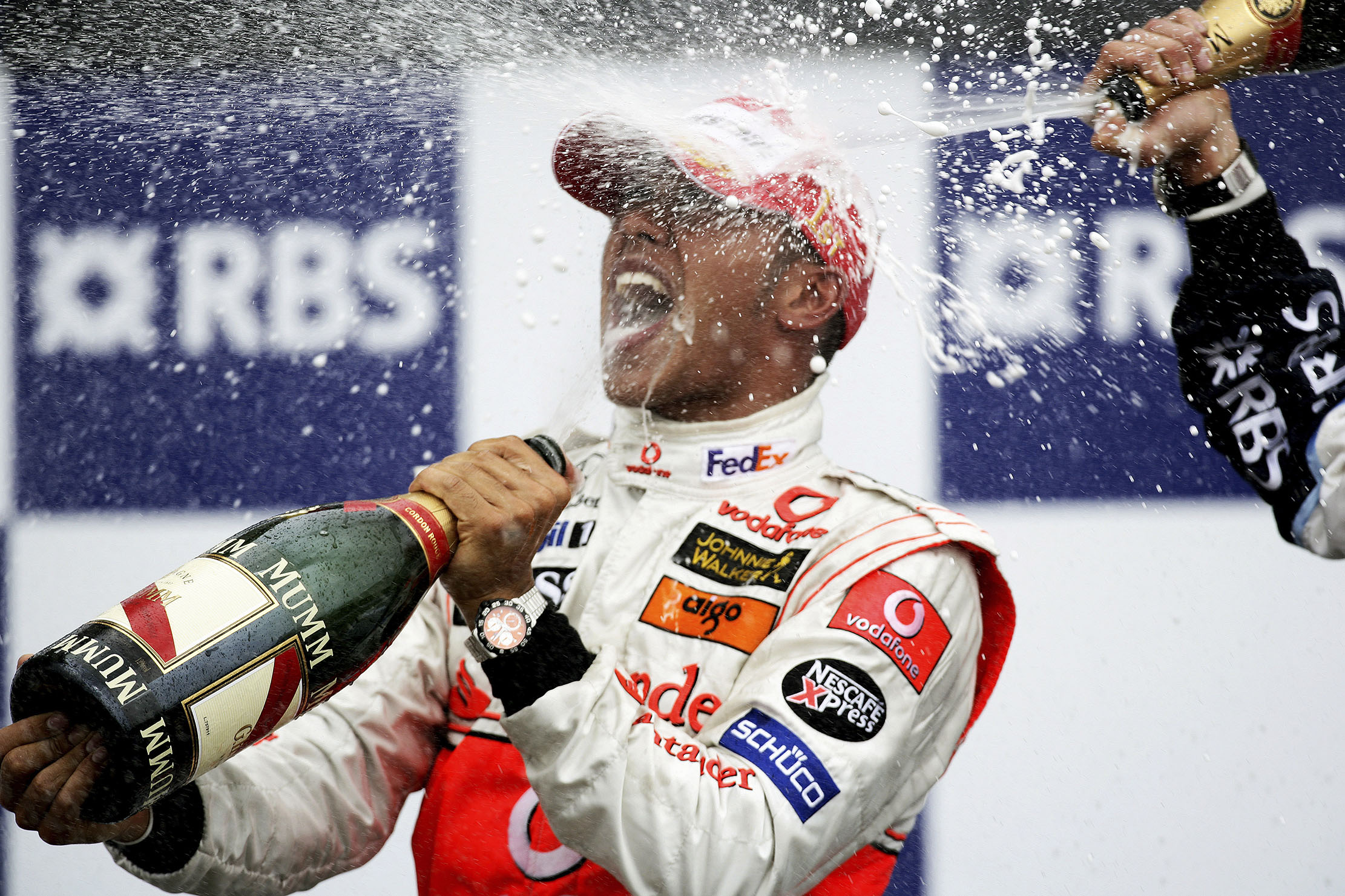 Lewis Hamilton, Claude Monet and the Four Horsemen of the Apocalypse: Country Life Quiz of the Day, April 29, 2025
Lewis Hamilton, Claude Monet and the Four Horsemen of the Apocalypse: Country Life Quiz of the Day, April 29, 2025Tuesday's Quiz of the Day looks back at Lewis Hamilton's first win and ponders on the meaning of greige.